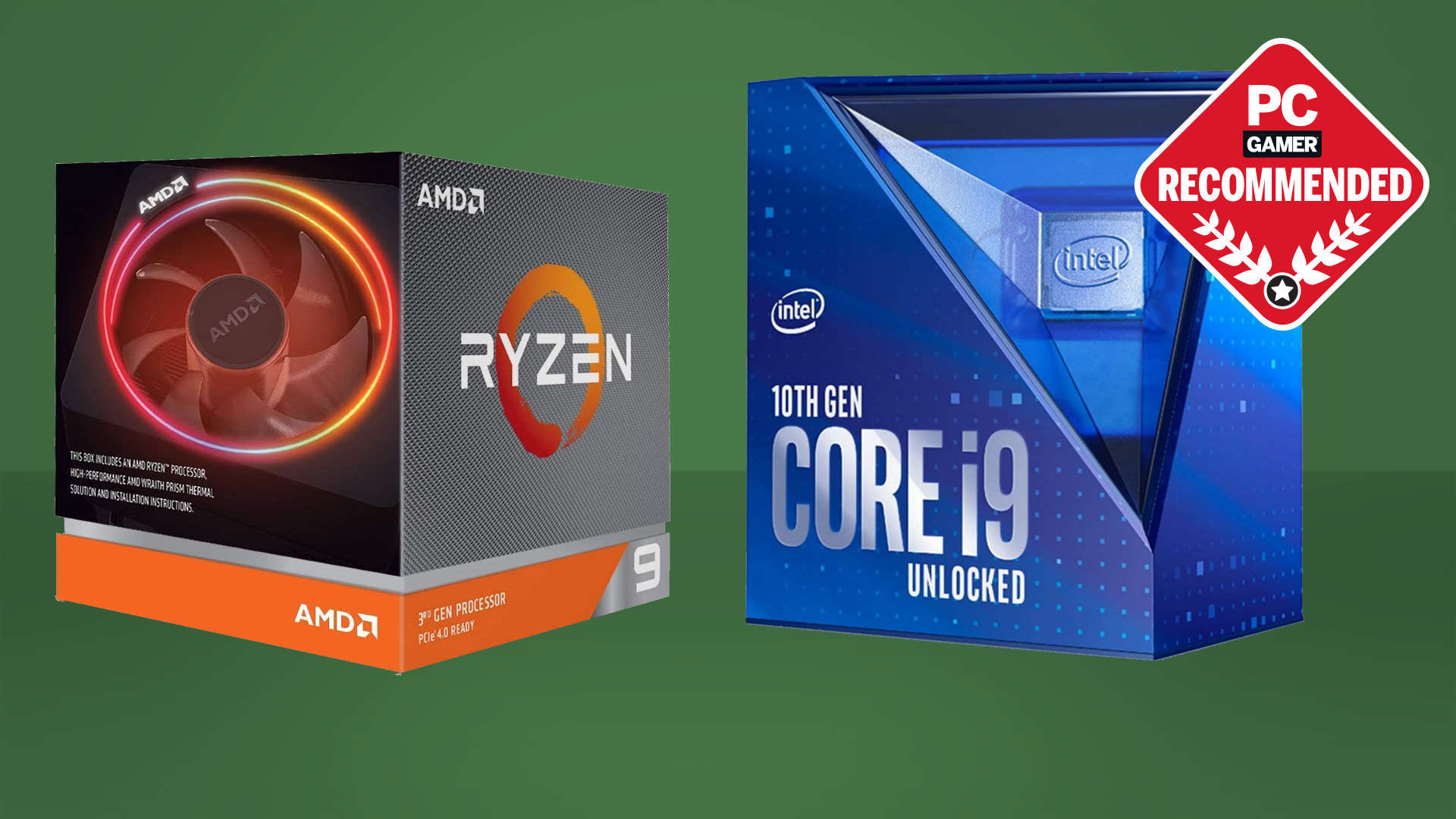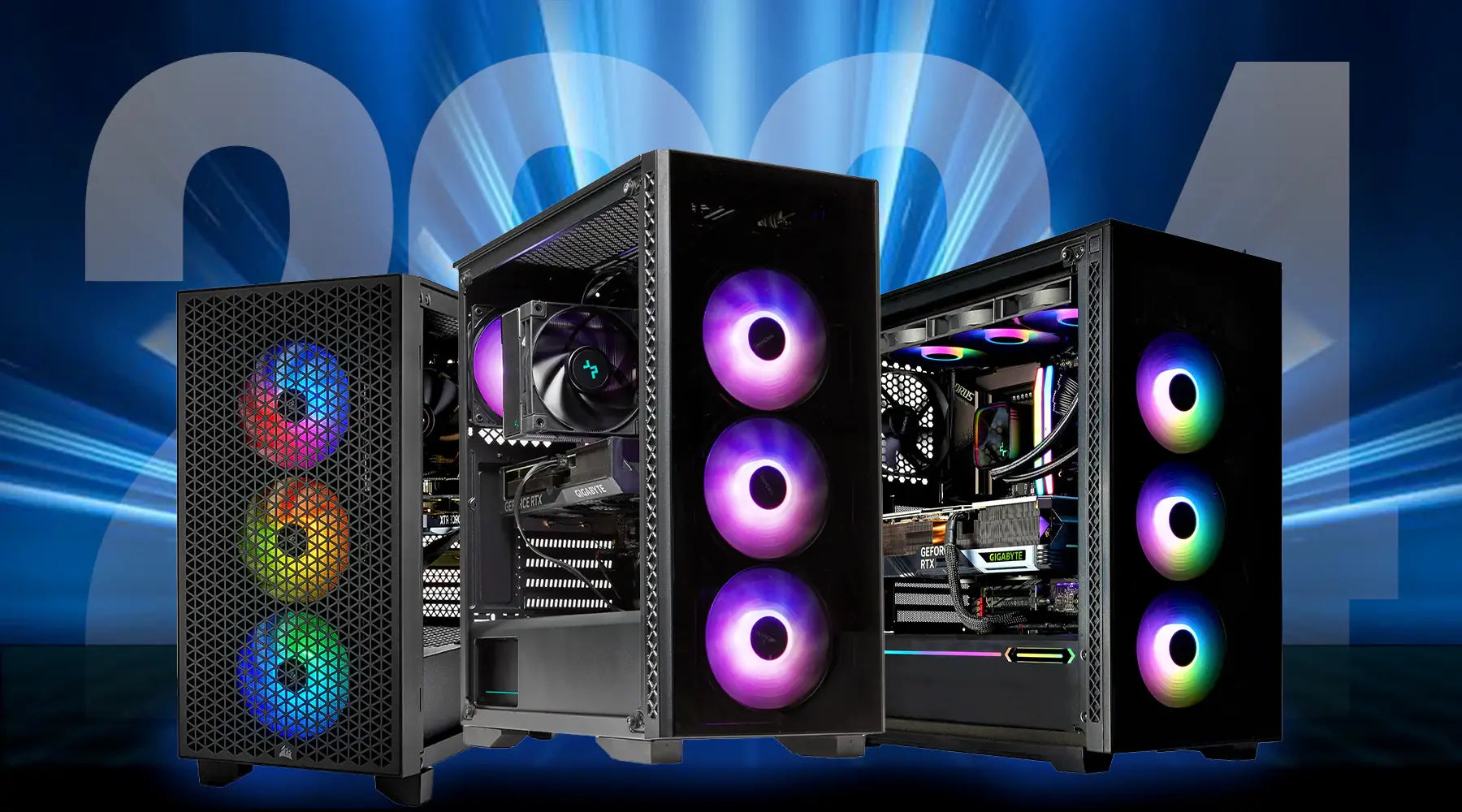
The Heart of Your Gaming Rig: Choosing the Right CPU for Gaming
The relentless pursuit of higher framerates, stunning visuals, and immersive gaming experiences has fueled constant innovation in PC hardware. While the graphics card (GPU) often steals the spotlight, the Central Processing Unit (CPU) is the unsung hero, the engine that powers everything from game logic and AI to physics simulations and world loading. Choosing the right CPU for gaming is a crucial decision that directly impacts your in-game performance and overall gaming experience.
This article will delve into the complexities of CPUs for gaming, covering the key factors to consider when making your purchase, exploring the differences between AMD and Intel, and providing guidance on selecting the best CPU for various gaming budgets and needs.
Understanding the CPU’s Role in Gaming
While the GPU is primarily responsible for rendering the visuals you see on your screen, the CPU handles a wide range of critical tasks that directly affect gameplay. These include:
- Game Logic and AI: The CPU processes the complex calculations that govern the behavior of characters, enemies, and the overall game world. More complex games with intricate AI systems demand more processing power.
- Physics Simulations: Realistic physics, such as object collisions, explosions, and fluid dynamics, are computationally intensive and rely heavily on the CPU.
- World Loading and Streaming: The CPU is responsible for loading game assets, textures, and environments into memory. A faster CPU can significantly reduce loading times and prevent stuttering or lag during gameplay as new areas are streamed in.
- Audio Processing: While dedicated sound cards can offload some audio processing, the CPU still plays a crucial role in managing and processing audio streams, especially in games with complex soundscapes.
- Background Processes: The CPU also handles background tasks, such as operating system processes, streaming software (if you’re a streamer), and other applications running in the background.
Key CPU Specifications to Consider for Gaming
When evaluating CPUs for gaming, several key specifications need careful consideration:
-
Cores and Threads: The number of cores and threads is a primary indicator of a CPU’s processing power. A core is a physical processing unit, while a thread is a virtual representation of a core that allows it to handle multiple tasks simultaneously.
- More Cores, More Power: Generally, more cores translate to better performance, especially in modern games that are designed to take advantage of multi-core processors. Games can distribute different tasks across multiple cores, leading to smoother gameplay and improved performance.
- Hyper-Threading/Simultaneous Multi-Threading (SMT): Intel’s Hyper-Threading and AMD’s Simultaneous Multi-Threading (SMT) technologies allow each physical core to function as two virtual cores (threads). This can improve performance in tasks that are highly threaded, such as video encoding and some games.
- For Gaming: While older games might run fine on a 4-core/4-thread CPU, modern AAA titles increasingly benefit from 6 cores or more. For high-end gaming and streaming, 8 cores or more is often recommended.
-
Clock Speed: Clock speed, measured in GHz (gigahertz), represents the number of instructions a CPU can execute per second. Higher clock speeds generally lead to faster processing.
- Base Clock Speed: This is the CPU’s standard operating frequency.
- Boost Clock Speed: This is the maximum frequency the CPU can reach under optimal conditions (temperature, power).
- Important Note: Clock speed isn’t the only factor determining performance. A CPU with a higher clock speed but an older architecture might be outperformed by a newer CPU with a lower clock speed but a more efficient architecture.
-
Cache: CPU cache is a small, high-speed memory located within the CPU. It stores frequently accessed data and instructions, allowing the CPU to retrieve them much faster than from system RAM.
- L1, L2, and L3 Cache: CPUs typically have three levels of cache: L1 (fastest, smallest), L2 (faster, medium size), and L3 (fast, largest).
- Larger Cache, Better Performance: A larger cache can improve performance by reducing the need to access slower system RAM.
-
CPU Architecture: The CPU architecture refers to the underlying design and technology used to build the processor. Newer architectures generally offer improved performance, power efficiency, and features.
- AMD Ryzen vs. Intel Core: AMD and Intel utilize different CPU architectures, each with its own strengths and weaknesses. Keeping up with the latest generations of each architecture is essential for optimal performance.
-
Socket Type: The socket type determines which motherboards are compatible with a particular CPU. Ensure that the CPU and motherboard have the same socket type before purchasing.
-
Thermal Design Power (TDP): TDP represents the maximum amount of heat the CPU is expected to generate under normal operating conditions. This is important for selecting a suitable CPU cooler to prevent overheating.
AMD vs. Intel: A Battle for Gaming Supremacy
For years, AMD and Intel have been locked in a fierce competition for CPU dominance. Both companies offer a range of processors suitable for gaming, but they often differ in their strengths and price points.
-
AMD Ryzen:
- Strengths:
- Excellent Multi-Core Performance: Ryzen CPUs are generally known for their strong multi-core performance, making them well-suited for tasks like streaming, video editing, and gaming that can utilize multiple cores.
- Competitive Pricing: AMD often offers more cores for the same price compared to Intel.
- Good Value for Money: Ryzen CPUs provide a good balance of performance and affordability.
- Considerations:
- Single-Core Performance: Historically, Intel CPUs have often held a slight edge in single-core performance, which can be beneficial in older games or games that are not well-optimized for multi-core processors. However, the gap has narrowed significantly with recent Ryzen generations.
- Strengths:
-
Intel Core:
- Strengths:
- Strong Single-Core Performance: Intel CPUs have traditionally excelled in single-core performance, making them a solid choice for older games or games that are not heavily multi-threaded.
- Established Brand Recognition: Intel has a long-standing reputation in the CPU market.
- Considerations:
- Higher Price Point: Intel CPUs are often more expensive than comparable AMD Ryzen CPUs.
- Multi-Core Performance: While Intel’s multi-core performance has improved, AMD Ryzen often offers more cores for the same price.
- Strengths:
Choosing the Right CPU for Your Gaming Needs and Budget
The best CPU for gaming depends on your specific needs and budget. Here’s a breakdown of recommendations for different scenarios:
-
Budget Gaming (Entry-Level):
- AMD Ryzen 5 5600/5600X: Offers excellent performance for the price, making it a great choice for 1080p gaming.
- Intel Core i5-12400F: A solid entry-level option that provides good single-core performance and decent multi-core performance.
-
Mid-Range Gaming (Sweet Spot):
- AMD Ryzen 5 7600X: A great performer in modern games, offering a good balance of price and performance.
- Intel Core i5-13600K/KF: A powerful mid-range CPU that delivers excellent gaming performance and strong multi-core capabilities.
-
High-End Gaming (Enthusiast):
- AMD Ryzen 7 7700X/7800X3D: These CPUs offer top-tier gaming performance and are well-suited for 1440p or 4K gaming. The 7800X3D is particularly notable for its exceptional gaming performance due to its large L3 cache.
- Intel Core i7-13700K/KF: A high-end CPU that provides excellent gaming performance and strong multi-core capabilities for streaming and other demanding tasks.
-
Extreme Gaming (Ultimate Performance):
- AMD Ryzen 9 7900X/7950X/7950X3D: These CPUs represent the pinnacle of AMD’s gaming performance and are ideal for enthusiasts who want the absolute best. The 7950X3D is a powerhouse for both gaming and content creation.
- Intel Core i9-13900K/KF: Intel’s flagship CPU offers unmatched performance for both gaming and demanding applications.
Considerations Beyond the CPU
While the CPU is crucial, it’s important to remember that it works in conjunction with other components to deliver a smooth gaming experience. Consider these factors:
- GPU: The graphics card is the primary driver of visual performance. Ensure your CPU is paired with a GPU that can handle your desired resolution and settings.
- RAM: 16GB of RAM is generally considered the minimum for modern gaming. 32GB is recommended for high-end gaming and streaming.
- Storage: An SSD (Solid State Drive) is essential for fast loading times and smooth gameplay. Consider an NVMe SSD for even faster performance.
- Motherboard: Choose a motherboard that is compatible with your CPU and offers the features you need, such as sufficient RAM slots, PCIe slots, and USB ports.
- Cooling: A good CPU cooler is essential to prevent overheating and maintain optimal performance. Consider an aftermarket air cooler or a liquid cooler.
Conclusion
Choosing the right CPU for gaming is a critical decision that can significantly impact your in-game performance. By understanding the key CPU specifications, considering the differences between AMD and Intel, and evaluating your specific gaming needs and budget, you can select a CPU that will provide a smooth, immersive, and enjoyable gaming experience. Remember to consider the other components in your system to ensure a balanced and well-optimized gaming rig. Happy gaming!

